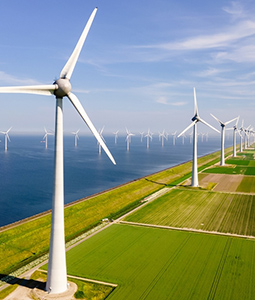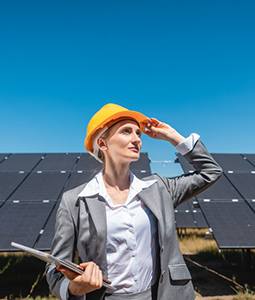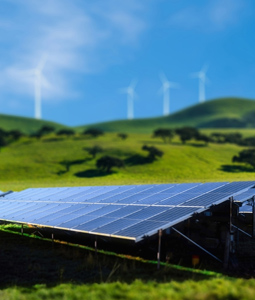Energy and Climate Partnership of the Americas (ECPA)

A significant part of global development is focused on energy and its utilization. This topic has gained relevance in the last decades.
This is a reality well understood by the leaders of the countries in the region. In this context, a significant milestone was achieved in April 2010 with the inaugural Ministerial Meeting of the Energy and Climate Partnership of the Americas (ECPA) in Washington, DC, USA.
Announced by the United States Government during the V Summit of the Americas in Trinidad and Tobago in 2009, the program has dedicated over a decade to its primary objective, which is to bring the energy issue to the forefront of the agenda of all the countries in the region.
Ministers, executives, businesses, and experts meet every two years to showcase progress, refine work plans, and establish concrete actions that propel the region’s leadership in adopting energy policies concerning generation and usage.
ECPA – Energy and Climate Partnership of the Americas (ecpamericas.org)
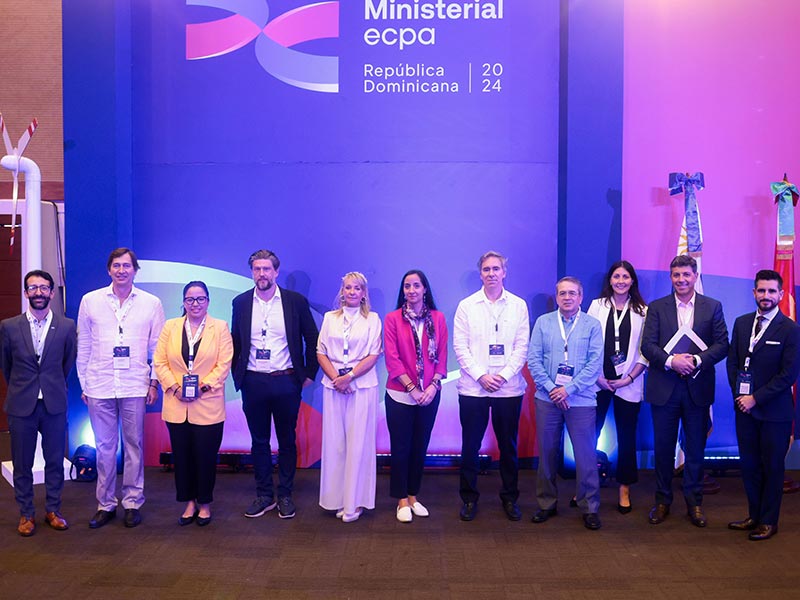
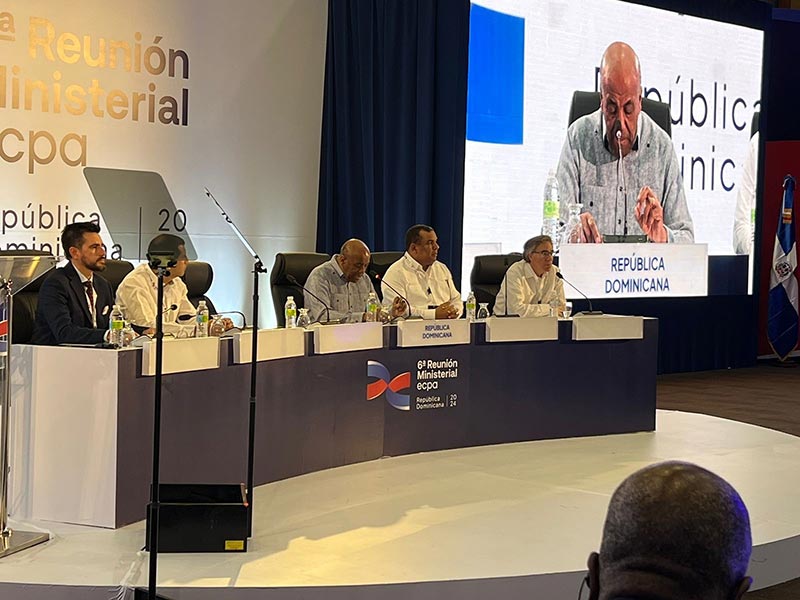
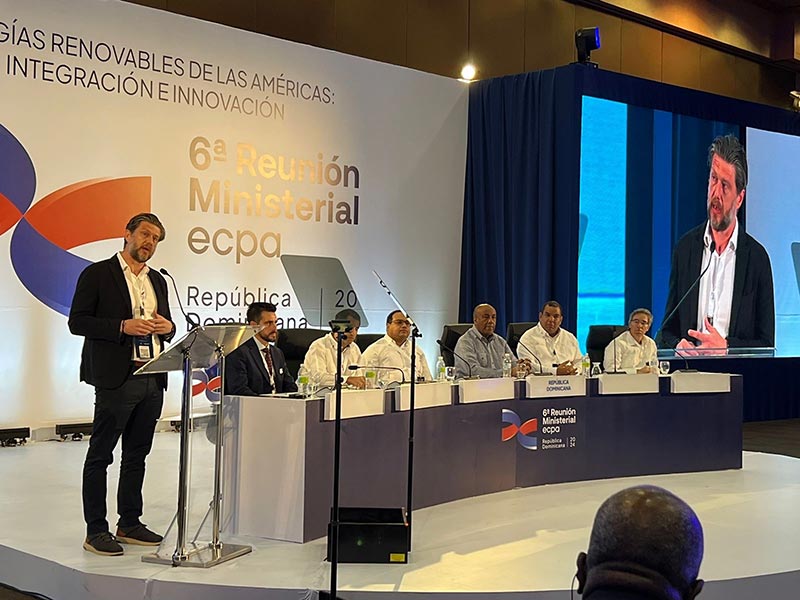
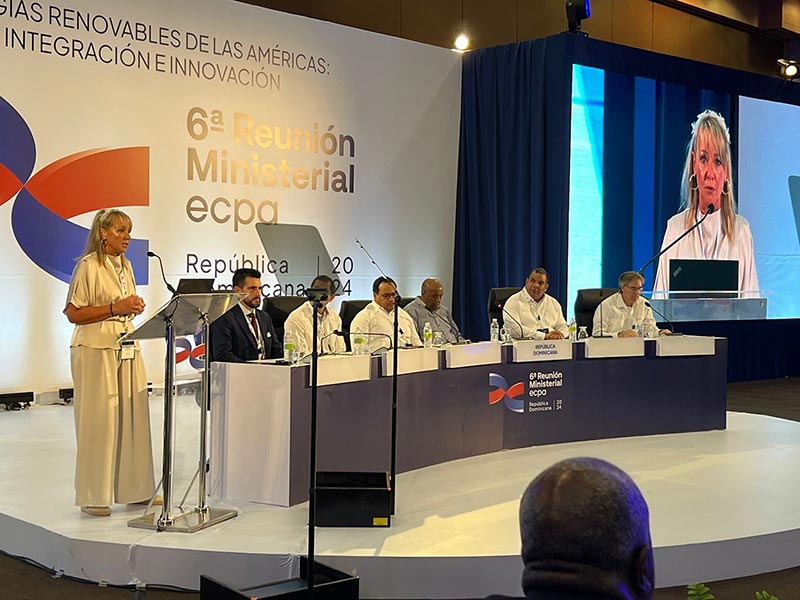
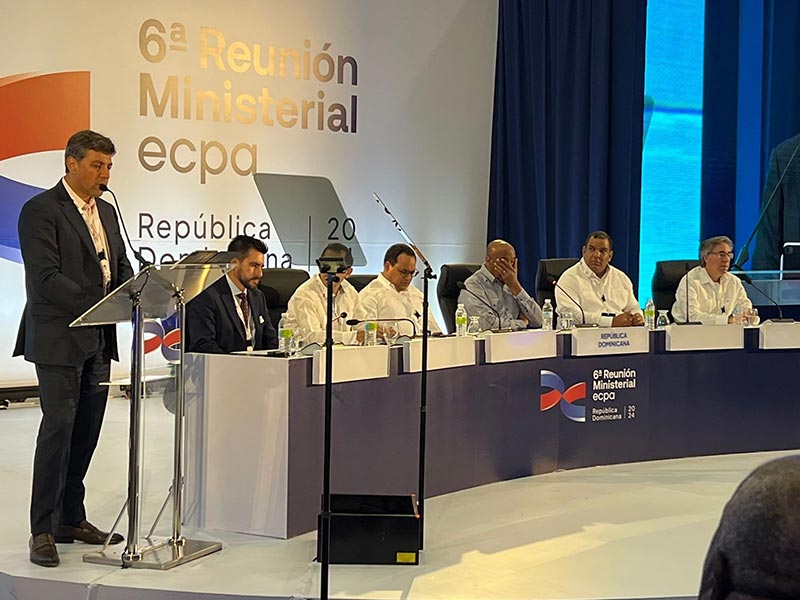
Which are the pillars of ECPA´s work?
-
Cleaner energy sources
-
Universal access to energy
-
Energy efficiency
-
Regional integration
-
Energy resilience
-
Innovation
Annual meetings
III ECPA Ministerial Meeting
Viña del Mar, Chile.
September 7-8, 2017
Theme: "Energy Transition in the Americas"
During the meeting, energy ministers and high-level officials from 24 countries in the region affirmed the need for a “common path" towards cleaner energy.
The event's backdrop was Hurricane Irma, one of the most devastating in the Caribbean. Michelle Bachelet, Chile's President, expressed concern about the increasing power and destructive effects of such events, emphasizing the need to act for an energy transition to reduce emissions and prevent worsening climate change.
Luis Almagro, Secretary General of the Organization of American States (OAS), highlighted the region's potential. He explained that the region owns one-third of the world's petroleum reserves, and 15 countries produce natural gas. Almagro also stated that American countries have various renewable resources, including solar, electric, geothermal, and hydro energy. “Renewable sources generate 60% of the electricity consumed in the region. That is the highest rate in the world”, he said.
However, he pointed out that around 30 million people in the continent still lack access to electricity.
During the meeting, Almagro explained that since its inception, ECPA has “become a facilitator for dialogue between governments and business groups aiming to open new energy markets, generate income, and improve people's quality of life.”
In addition to country delegations, the meeting saw active participation from the private sector through the Americas Business Dialogue (ABD).
All participants in the Viña del Mar meeting adopted an Action Plan. This document outlines specific initiatives to achieve their goals over the next two years.
(Source: ECPA)
IV Ministerial Meeting
Montego Bay, Jamaica.
February 27-28, 2020
Theme: "Energy Resilience and Investment Opportunities."
The IV Ministerial Meeting of ECPA received 29 regional Energy Ministers at Montego Bay, Jamaica. The central theme chosen by the organization for the meeting was "Energy Resilience and Investment Opportunities."
During the dialogue, the participants analyzed challenges, new development opportunities, and economic growth associated with energy use.
The discussions between representatives of the public and private sectors concentrated on economic formulas for financing cleaner and renewable energies, investment opportunities in energy efficiency, electromobility, and ways to increase private sector participation in infrastructure development.
For this meeting, ABD cooperated closely with ECPA on policy recommendations. Also, bilateral and group meetings with ABD member companies were held during the session to explore specific opportunities for public-private partnerships. ABD generated a series of working documents to support discussions and achieve progress.
New regulatory frameworks for grid flexibility
The role of natural gas in the Latin American energy transition
V Ministerial Meeting
Panama City, Panama.
February 10-11, 2022
Theme: "Fair and Inclusive Energy Transitions."
The focus of the V ECPA Ministerial Meeting in Panama, held in a virtual and in-person format, was on promoting a regional energy transition agenda, fostering leadership, cooperation, and continent-wide integration towards achieving net-zero emissions by 2050.
The dialogue aimed to seek synergies, establish alliances across all sectors, and share concrete measures taken by countries towards the final goal.
During the ministerial meeting, the work was centered on three topics:
- Economic benefits and financing mechanisms for energy transitions.
- Public-private collaboration to accelerate the process.
- Innovation and universal access to energy.
In this context, the Americas Business Dialogue (ABD) worked directly with discussion groups to make several proposals from the private sector's view through Recommendations.
After two days of intensive work, the attendees established and agreed upon an Action Plan for the next two years with detailed focuses and concrete measures that countries could take to advance the energy transition.
VI Ministerial Meeting
Punta Cana, Dominican Republic.
March 14-15, 2024 Theme: "Renewable Energies in America: Integration and Innovation."
Renewable Energies in the Americas: Integration and Innovation
The 6th Ministerial Meeting of the Energy and Climate Partnership of the Americas (ECPA) highlighted the Integration and Innovation of Renewable Energies in the Region.
The 6th Ministerial Meeting of the Energy and Climate Partnership of the Americas (ECPA), under the theme "Renewable Energies of the Americas: Integration and Innovation," was successfully held on March 14th and 15th, 2024, in Punta Cana, Dominican Republic. This high-level event brought together government leaders, private sector representatives, energy experts, sustainable development professionals, and other key stakeholders from Latin America and the Caribbean to engage in dialogue, exchange ideas, and establish concrete commitments to drive the transition towards clean, sustainable, and renewable energy in the region.
The first day featured thematic sessions addressing critical topics such as private sector investment in the energy sector, clean hydrogen certification, and energy resilience in the Caribbean, among others. Sessions such as the Dialogue to Advance Fair and Inclusive Energy Policies in the Americas, Decarbonizing Maritime Industry and Integrating Transportation Infrastructure, and the RELAC initiative (Accelerating Clean Energy Integration and Innovation in Latin America and the Caribbean) were highlighted, with participation from leading companies such as AES, BMW, InterEnergy Group, and Wärtsilä.
The opening of the 6th Ministerial Meeting was graced by the distinguished presence of the Vice President of the Dominican Republic, Raquel Peña, along with senior representatives from the Dominican government and international organizations.
The second day continued with plenary sessions, notably featuring the third session on the Role of Public-Private Dialogue for a Just and Inclusive Energy Transition in the Americas, led by ABD. The energy working group presented the private sector's vision regarding three pillars: Rapid Implementation of Cleaner Energy Technologies and Decarbonization, Market Analysis, Planning, and Design, and Regional Collaboration, for discussion with the ministers. ABD was represented by AES as the group's chair, along with InterEnergy Group, Wärtsilä, and CMI Inversiones.
In an effort to strengthen bilateral cooperation, the Dominican Republic signed Memorandums of Understanding with Chile and Panama, focusing on the comprehensive utilization of energy resources for present and future generations, under criteria of transparency and environmental, economic, and social sustainability. A similar agreement was established between Panama and Chile, further reinforcing cooperation in the region. These agreements will be valid for two years.
Additionally, the Economic Commission for Latin America and the Caribbean (ECLAC), the Latin American Energy Organization (OLADE), and the Dominican Republic issued a joint call to action to deploy public policies, strategies, and actions that accelerate just, inclusive, and sustainable energy transitions in Latin America and the Caribbean (LAC).
The 6th ECPA Ministerial Meeting was a crucial milestone towards a more sustainable and inclusive energy future for the Americas region, highlighting the importance of dialogue and collaboration between the public and private sectors to achieve these objectives.

